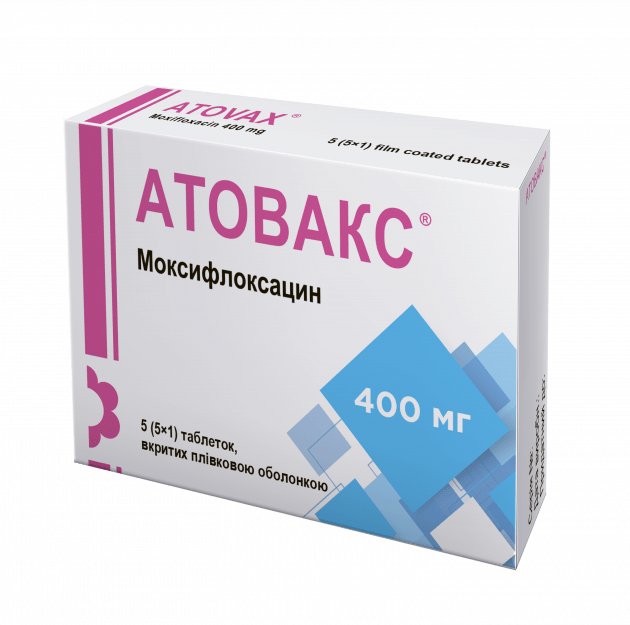The information in this section is intended solely for the medical and pharmaceutical industry and may only be used in professional activities.
ARE YOU A MEDICAL AND/OR A PHARMACEUTICAL WORKER?
(Choosing an answer, you are responsible for the accuracy of the information provided)
YES, I am a medical/pharmaceutical worker
NO, I am not a medical/pharmaceutical worker

Treatment of the following bacterial infections caused by microorganisms susceptible to moxifloxacin in patients aged 18 years and older. Moxifloxacin should be prescribed only when the use of antibacterial agents, which are usually recommended for the initial treatment of the following infections, is impractical or when the indicated treatment has been ineffective. • Acute bacterial sinusitis (diagnosed with a high degree of probability). • Exacerbation of chronic obstructive pulmonary disease, including bronchitis (diagnosed with a high degree of probability). • Community-acquired pneumonia, with the exception of severe community-acquired pneumonia. • Inflammatory diseases of the pelvic organs of mild and moderate severity (including infectious lesions of the upper reproductive system in women, including salpingitis and endometritis), not associated with tubo-ovarian abscess or abscesses of the pelvic organs. The tablet form of moxifloxacin is not recommended for use as monotherapy for mild to moderate pelvic inflammatory disease, but may be used in combination with other appropriate antibacterial agents (e.g., cephalosporins) due to the increasing resistance of Neisseria gonorrhoeae to moxifloxacin (with the exception of moxifloxin strains of N. gonorrhoeae). The tablet form of moxifloxacin can be used to end the course of treatment, in which the initial therapy is with the parenteral form.


